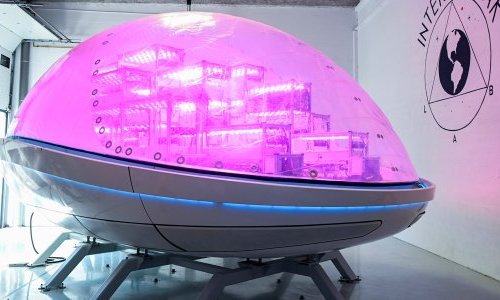In 2019, partners from across Europe came together to create a multi-biorefinery platform that valorizes urban bio-waste (wastewater and the organic fraction of municipal bio-waste). Recognizing bio-waste as a significant source of renewable energy and recyclable materials, this initiative embodies the principles of a sustainable and circular economy, ensuring that resources are repurposed rather than discarded. Such innovations are critical, especially given that currently, up to 138 million tons of urban bio-waste - equivalent to 75% - are incinerated or landfilled within the EU, resulting in substantial ecological and economic costs.
Ectoine extraction and purification
The organic fraction of municipal solid waste undergoes an initial hydrolysis stage. Subsequently, the solid fraction of the hydrolysate is converted into biogas through anaerobic digestion. This biogas is used as carbon source for methanotrophic bacteria to grow in a bioreactor, where they can accumulate up to 10% of their weight as ectoine, to protect themselves from the salt stress of the culture medium.
Both the ectoine extraction and purification are carried out by the by project partner Institute of Sustainable Processes (ISP). The ectoine extraction is performed by biomilking and the ectoine purification comprises several steps including desalination via electrodialysis and isolation through ion exchange chromatography.
Further along the production chain, another project partner, RNB, utilizes the purified ectoine as a base ingredient in the development of cosmetic products. These products undergo various formulation trials and stability testing. The most stable of these formulations are now produced on a pilot scale and undergo validation at RNB’s production facilities.
This scientific collaboration illustrates the practical application of bio-waste conversion in creating value-added products.
Learn more about the project at https://deep-purple.eu/.































